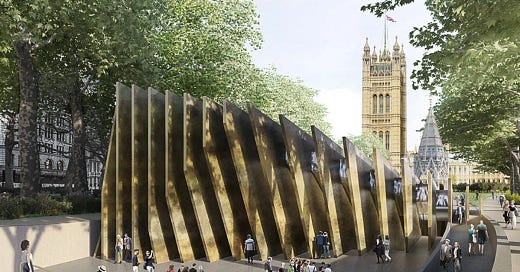The government’s ill-fated plan to build a Holocaust memorial and learning centre in a much-loved public park adjoining the Houses of Parliament has run into further difficulties. Last Thursday, a team of parliamentary officials known as the examiners of petitions for private bills ruled that the bill was hybrid.
A hybrid bill is a public bill with priva…
Keep reading with a 7-day free trial
Subscribe to A Lawyer Writes to keep reading this post and get 7 days of free access to the full post archives.



